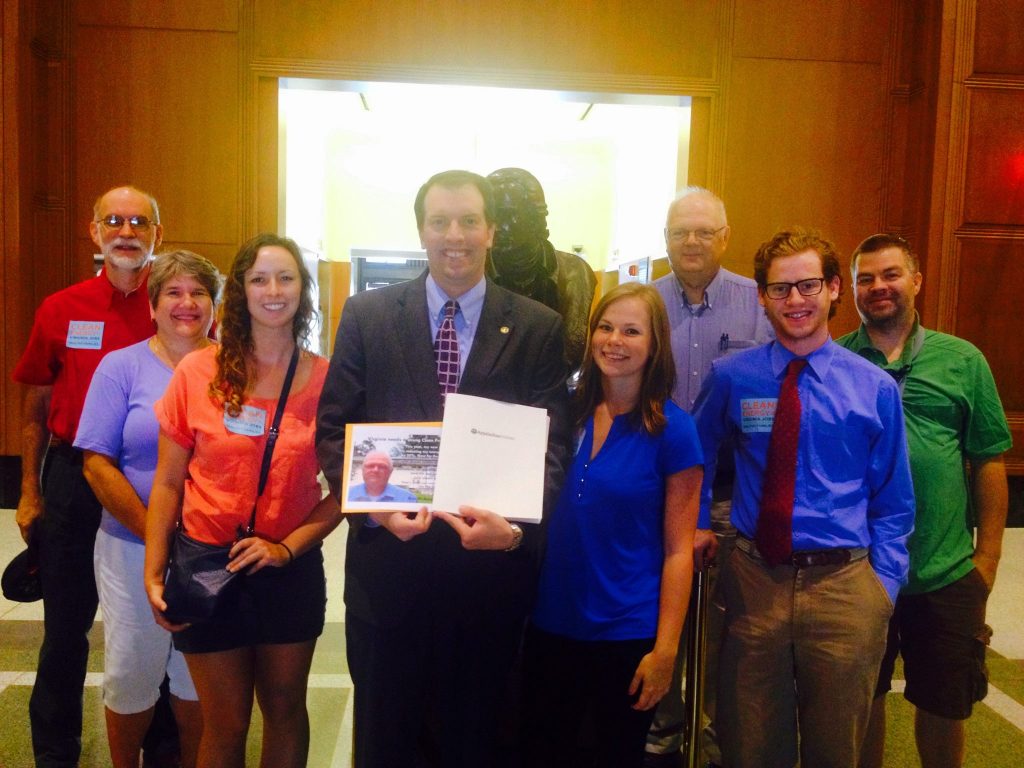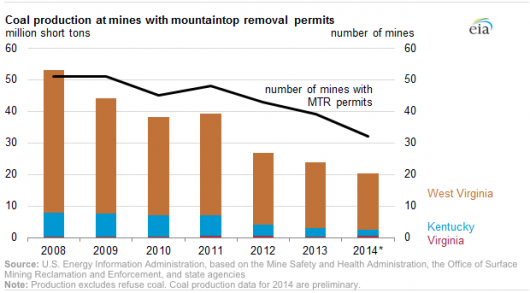All Posts
Virginia city first to support POWER+
 The City of Norton, in southwest Virginia, has voted unanimously to support a federal budget proposal that would steer billions of dollars for economic development to coal-impacted communities, including in Virginia. It’s the first such local resolution in the nation supporting the White House’s “POWER+ Plan.” Appalachian Voices championed the resolution with Norton’s leaders and commends them for leading the way on this vital issue.
The City of Norton, in southwest Virginia, has voted unanimously to support a federal budget proposal that would steer billions of dollars for economic development to coal-impacted communities, including in Virginia. It’s the first such local resolution in the nation supporting the White House’s “POWER+ Plan.” Appalachian Voices championed the resolution with Norton’s leaders and commends them for leading the way on this vital issue.
Va. City First Locality Nationwide to Support POWER+
Contact: Adam Wells, Economic Diversification Campaign Coordinator, Appalachian Voices, 276-679-1691, adam@appvoices.org Norton City Council voted unanimously yesterday evening in favor of a resolution supporting a federal budget proposal to steer billions of dollars for economic development and diversification to Appalachia’s coal-impacted communities, including those in Virginia. It’s the first such local resolution of support in…
Read MoreStream “protection” rule falls short
The Obama administration says its draft rule, released last week, to mitigate the water quality impacts of surface coal mining represents a “balanced approach to energy development.” But there’s nothing balanced about blowing the tops off ancient mountains and jeopardizing the health of thousands of Americans.
Read MoreGinseng’s growing role in the new Appalachian economy
Most people who live in the mountains know that just being here can have a healing effect on the soul. But not as many people know that many native plants have real medicinal properties. Growing and marketing those wild medicinal plants and herbs was the subject of a recent workshop offered by the group AppalCEED in Norton, Va.
Read MoreVirginians’ electric bills could shrink under Clean Power Plan
A report by Public Citizen’s Climate Program details how the U.S. Environmental Protection Agency’s soon-to-be finalized standards on carbon pollution could lower Virginians’ power bills. The strategy for achieving this benefit is simple: invest in cost-effective energy efficiency programs first.
Read MoreInterior Department Issues Draft Stream Protection Rule
Contact: Cat McCue, Communications Director, 434-293-6373, cat@appvoices.org Today, the U.S. Department of the Interior issued a long-awaited draft of the Stream Protection Rule, which the agency has been working on since 2010. The purpose of the rule is to prevent or minimize the impacts of surface coal mining on surface water and groundwater. The agency’s…
Read MoreHow much progress are we making on ending mountaintop removal?
Last week, the U.S. Energy Information Administration pointed to a steep decline in coal produced by mountaintop removal mining. But
a closer examination of the data calls into question the adequacy of the legal definition of “mountaintop removal” and, more importantly, demonstrates that much more work is needed to truly end destructive mining practices in Central Appalachia.
Eliminating poverty housing with efficient and alternative energy use
When North Carolina’s Ashe County Habitat for Humanity formed five years ago, seven people came together to study how to best build a home. They made a commitment not only to affordability, but also to energy savings, and the board voted to build all Ashe County Habitat houses to maximize efficiency and place an emphasis on alternative forms of energy.
Read MoreTurning down the heat: A collaborative effort to reduce energy bills
Extreme temperatures can send electric utility bills skyrocketing across most of North Carolina and place high demands on the state’s electric utility infrastructure. Fortunately, proven models exist that expand access to financing for energy efficiency improvements for everybody, including those who may not qualify for loans under traditional underwriting criteria.
Read MoreA “golden opportunity” in disguise
 In 2013, federal funds derived from a per-ton fee on mined coal were distributed to Central Appalachia states for restoring abandoned mine lands. The result was $182 million in economic benefit and 1,317 jobs–plus cleaner streams, and a healthier future for nearby residents. A new report out shows how the federal program should be fixed to yield even better results, and sooner.
In 2013, federal funds derived from a per-ton fee on mined coal were distributed to Central Appalachia states for restoring abandoned mine lands. The result was $182 million in economic benefit and 1,317 jobs–plus cleaner streams, and a healthier future for nearby residents. A new report out shows how the federal program should be fixed to yield even better results, and sooner.






